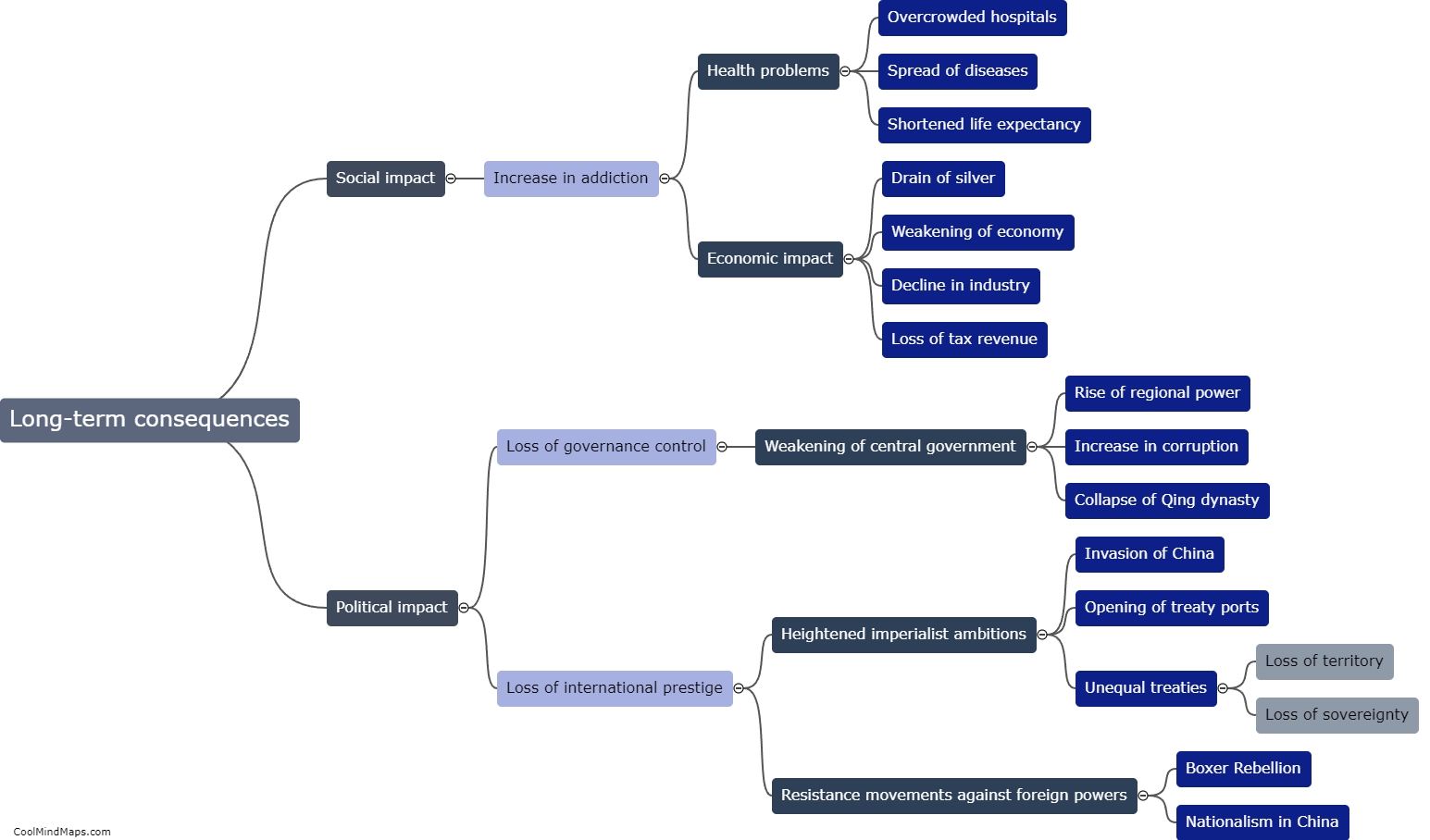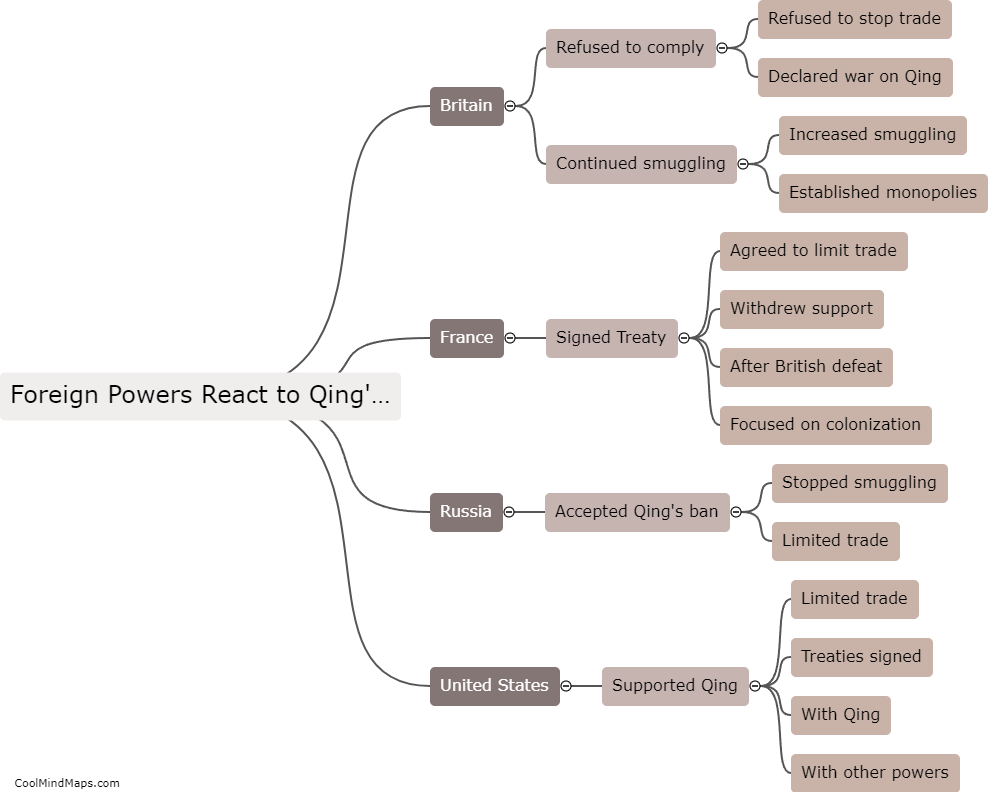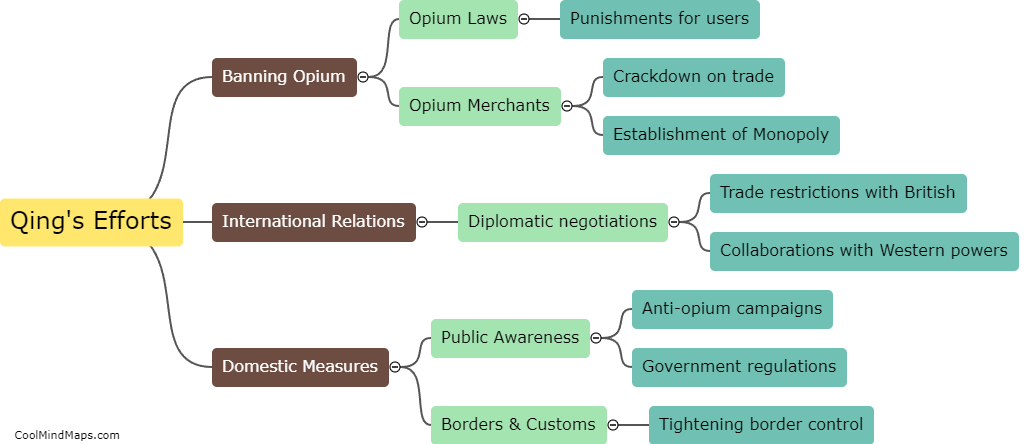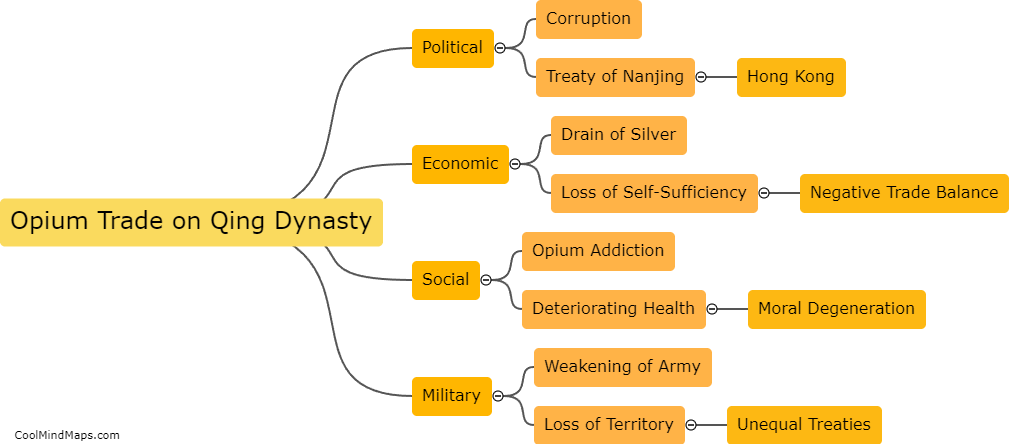What were the long-term consequences of the Qing's unsuccessful attempts to limit the opium trade?
The Qing Dynasty's unsuccessful attempts to limit the opium trade had profound long-term consequences both domestically and internationally. Firstly, domestically, the influx of opium had devastating social, economic, and health effects on Chinese society. The addiction to opium led to widespread societal degradation, increased crime rates, and diminished productivity. Additionally, the outflow of silver to foreign traders in exchange for opium severely weakened the Chinese economy. Internationally, these events highlighted China's vulnerability and sparked a series of conflicts with foreign powers known as the Opium Wars. These wars ultimately led to China's loss of control over important territories, the signing of unequal treaties, and an overall decline in its geopolitical position, marking the beginning of a century of humiliation for the country. Overall, the Qing Dynasty's inability to limit the opium trade had lasting consequences that significantly impacted Chinese society and its relations with the outside world.

This mind map was published on 18 September 2023 and has been viewed 40 times.











